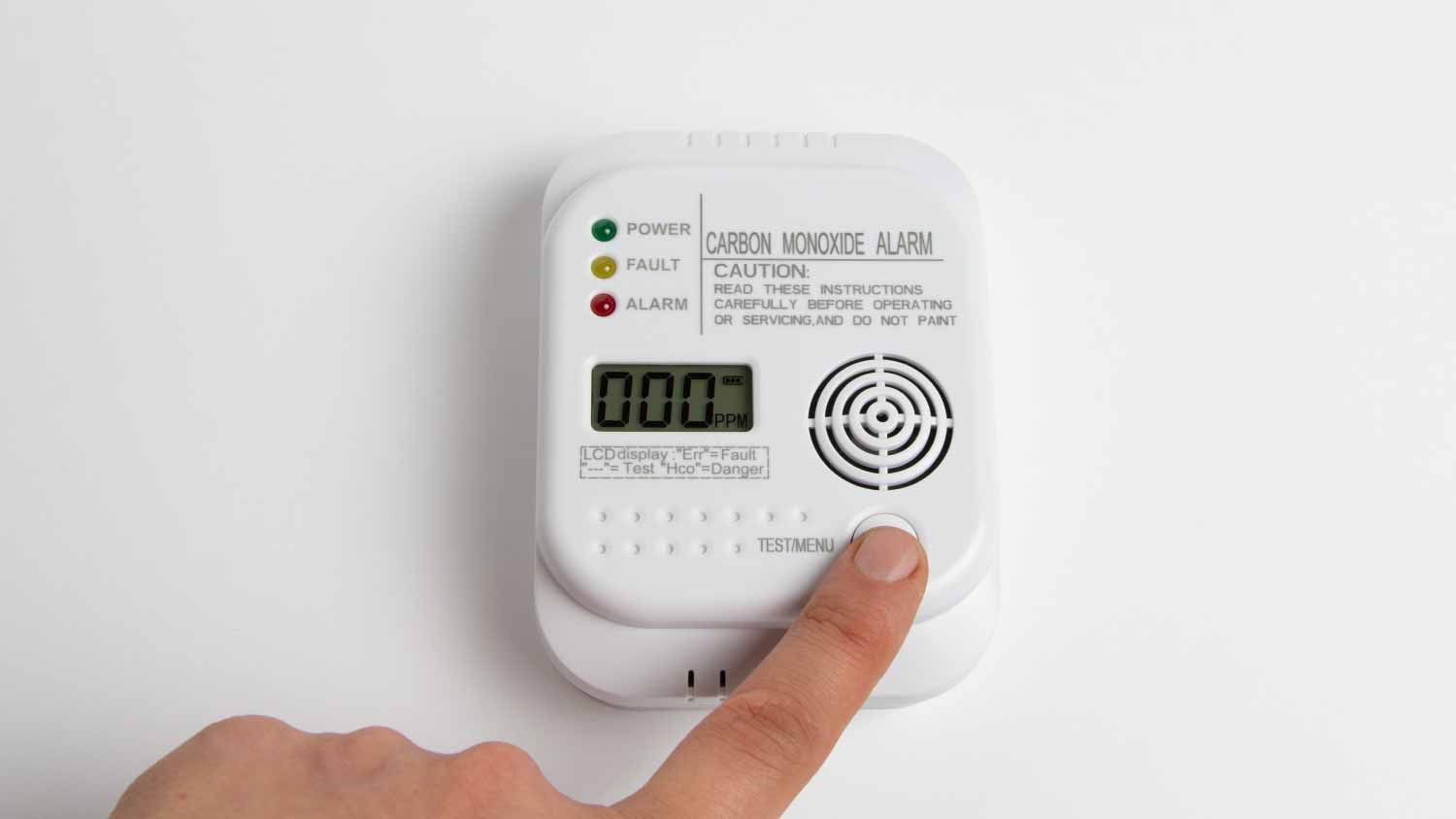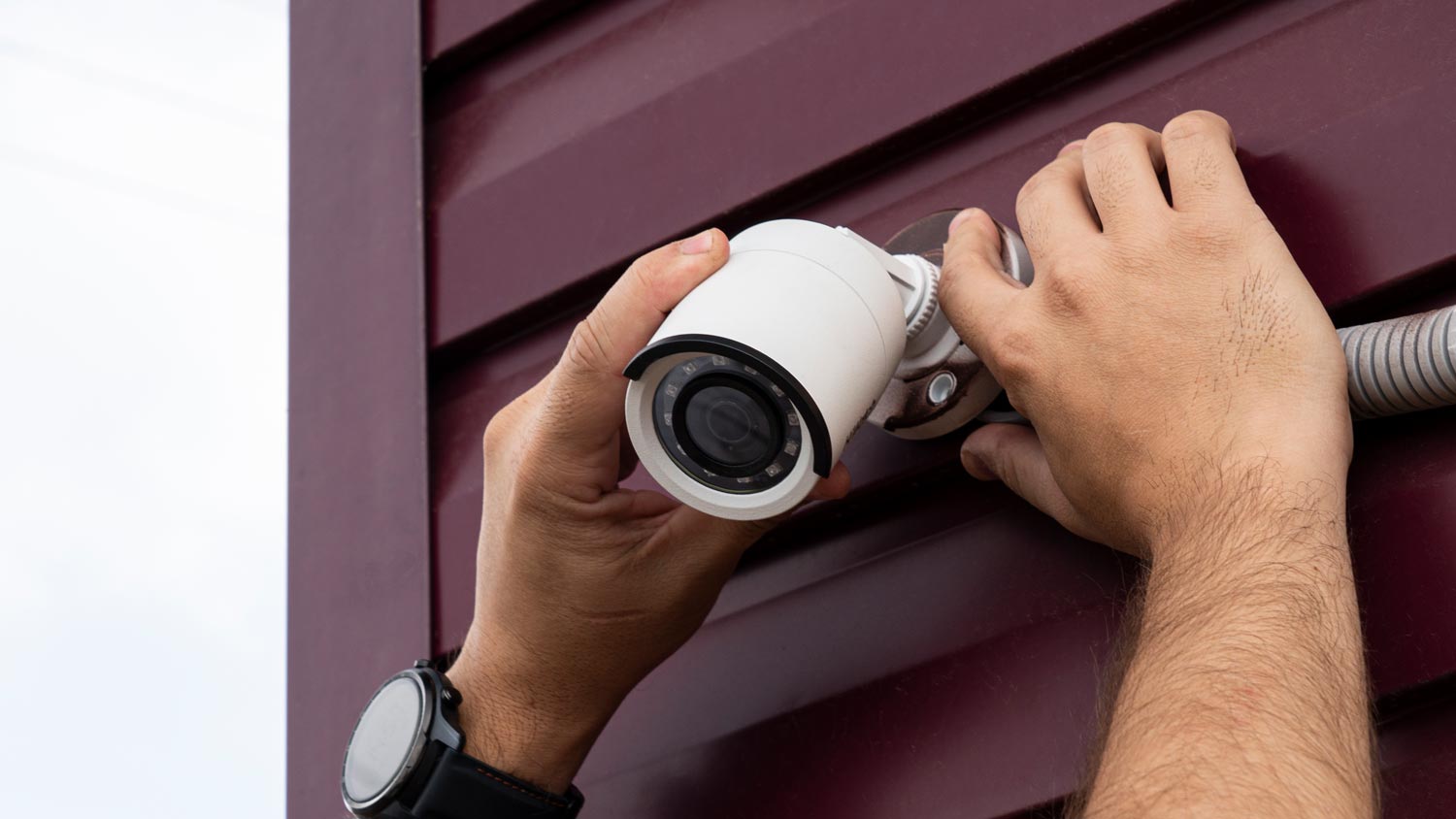Are Keyless Door Locks Safe? Pros and Cons of Keypad Locks
Weight the benefits and disadvantages before you get this tech-forward solution to a classic device


Keyless locks are great for adding accessibility to your home and granting access to trusted individuals.
These devices are not infallible, and you may still get locked out if you forget the code or experience a malfunction.
If you’ve left your keys at work one too many times or you are tired of opening the front door late at night for a forgetful teenager, you might be considering a keyless door lock system for your home. On the other hand, that Bluetooth device that never connects and the latest major data breach have you wondering if you can trust contemporary digital technology to keep your home safe. Read through our pros and cons of keyless door locks to ensure you make an informed purchase before you toss away your set of spare keys.
What Is a Keyless Door Lock?
Also called a smart or electronic lock, a keyless door lock doesn’t require a key. Simple, right? Keyless door locks can use facial recognition, fingerprints, fobs, or combination codes to lock and unlock doors. The most common type of keyless lock uses a PIN code.
Are Keyless Door Locks Secure?
Keyless door locks offer another level of security for your home, but how secure they are ultimately comes down to your personal habits. For example, if you find yourself constantly leaving a key under a doormat, which makes it more vulnerable for anyone to enter, then a keyless lock may provide more security than your current strategy. But if you give out your passcode to your keyless door lock and choose not to update it, then it can make you slightly less secure.
Keyless door locks offer many advantages, though, and can be a part of an overall security plan for your home.
Pros of Keyless Door Locks
If the thought of keyless door locks sounds intriguing and you’re curious if they would work in your home, consider these benefits.
No Key Needed
An obvious benefit, the idea of not having to carry a key around is alluring to many, especially those of us who tend to misplace things often. It’s one less thing to schlep, one less thing to worry about, and one less call to a local locksmith.
Allows Others Access

At work late and need your sister to stop at the house to feed the dogs? With a keyless lock, you don’t need to worry about making keys for extended family or neighbors. You also won’t need to keep track of who has a key and who doesn’t, cutting back on the cost of changing your locks if you can’t get a copy back. Everyone who has the code can get in when they need to without much fuss. In addition, you won’t need to worry about hiding a key under a plant or a rock and worry about someone finding it and breaking in.
Helpful for Household Members With Accessibility Needs
If someone in your home needs accommodations for mobility, a smart lock (often paired with and controlled by a smartphone) offers the simplicity of saying, “Hey Google, open the front door” to access the home. In addition, some people with disabilities such as severe arthritis may find tasks like turning a key in a door painful, in which case a keyless lock can be of great benefit.
Cons of Keyless Door Locks
Keyless door locks offer plenty of advantages, but you may want to consider the downsides of having them too.
Can Be Hacked
The code to your lock is a password, just like the one you use you access your bank account at an ATM. Tech-savvy predators can hack—or even guess—this code. In addition, someone walking by might be able to peek over your shoulder and see the code you’ve entered to gain unwanted access later.
Tip: If you opt for a keyless lock, we recommend making your password difficult to guess. ‘1234’ just doesn’t cut it in today’s digital world.
They’re Expensive
An old-fashioned deadbolt costs between $20 and $50, but a keyless lock runs anywhere from $150 to $250, and the installation can also come with a hefty price tag as they’re much more complicated to install. In addition, you need to make sure the keyless lock’s orientation matches your door; some only lock left or right.
Security Is Not Guaranteed
A lot of people think a keyless door lock offers greater security, but there are still many ways an expert burglar can enter your home. They can do this by either picking the keyless lock (some models offer the option for you to use a key, so the break-in method would be the same with a regular lock), or breaking in through a window. Check your lock options’ security grades and see whether the keyless lock rates higher than your regular deadbolt; a grade 1 is the highest grading, usually used for commercial or industrial buildings.
You Might Forget the Code
If you can barely remember your spouse’s birthday, a lock with a code might not be a good idea—especially since you should change your keyless lock’s code often to prevent the number keys from wearing out and making your code obvious to intruders.
Risk of a Power Failure
As with all technology, if there’s a power failure, you might be stuck without a connection and, subsequently, no way to get inside your home. Some keyless locks do have a backup power system built into them but they usually don’t have a very long life.
Can Be Unattractive
Most of the more basic keyless locks on the market are not built with design in mind. They’re essentially metal boxes jutting out from your door, and some people prefer the classic look of a deadbolt.
Frequently Asked Questions
It depends on the quality of the keyless lock and usage, but in general, you can expect a keyless lock to last around three to five years. The batteries typically last around six to 12 months. The good news is most keyless locks include a low battery indicator so you can receive ample warning if your battery is about to die.
It depends on what type of keyless entry it is and if the locksmith has the proper tools to remove a keypad entry lock since some are more advanced than others. However, locksmiths can typically work around keyless entries to vehicles, so it depends on what type of keyless entry system needs opening.
Yes, keyless locks can deter burglars, mostly because they boost security and offer advanced features. Most models allow for unique codes or temporary access, making it harder for intruders to break in. Many of these smart locks even alert you if someone tries to tamper with them. However, you need to remember that while they provide an added layer of protection, no lock is completely foolproof. Pairing these locks with good security habits—like proper lighting and surveillance cameras—creates a strong defense to help stop intruders in their tracks.





- How to Secure a Door Without a Lock While You Wait for a Locksmith
- Should You Buy a Smart Lock or a Regular Lock
- How to Get a Broken Key Out of a Lock (With Tools You Already Have)
- 5 Ways To Make Your Front Door Energy Efficient
- How to Fix a Door That Sticks: 5 Different Methods
- Why Water is Leaking Through Your Sliding Glass Door and How to Stop It
- How to Insulate a Door
- The 4 Most Common Storm Door Handle Types
- 9 Tips to Make Installing a Pocket Door in Your Home Easy
- How to Fix a Gap Between a Storm Door and Frame to Seal Your Home










